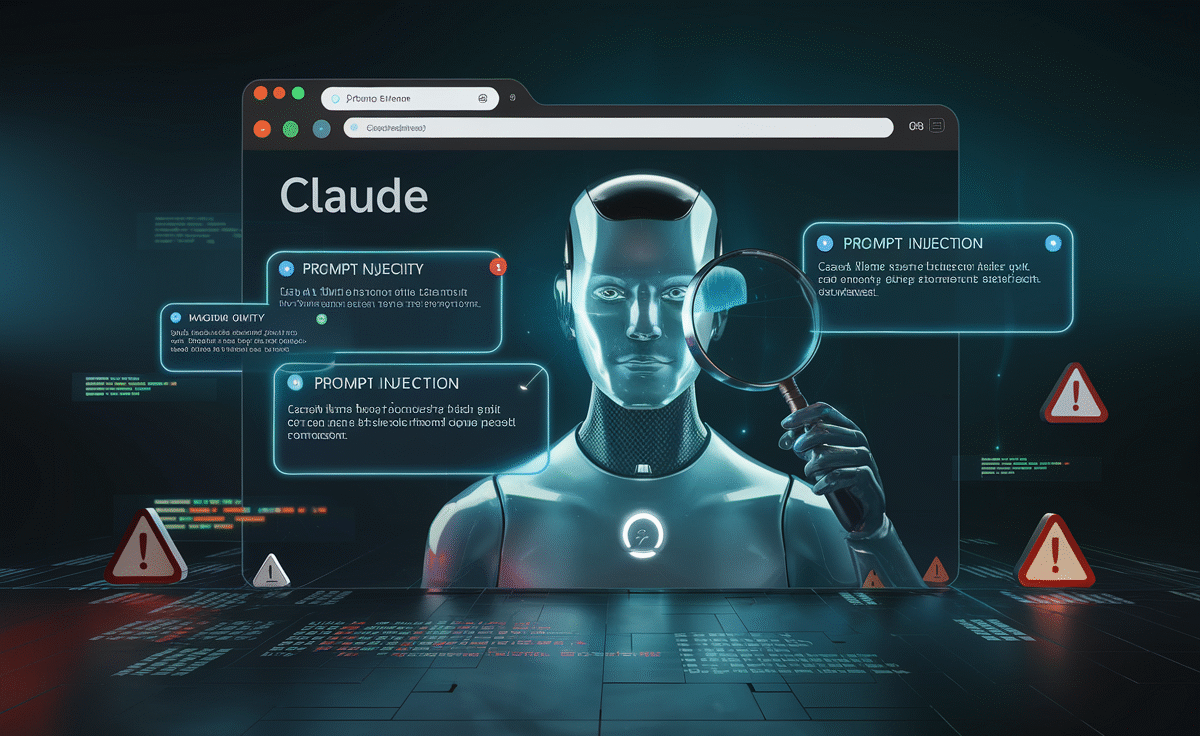Are you looking for smarter insights delivered directly to your inbox? Sign up for our weekly newsletters to receive essential updates tailored for enterprise AI, data, and security leaders. Subscribe now!
Anthropic’s New AI Initiative
Anthropic has initiated testing for a Chrome browser extension that enables its Claude AI assistant to take control of users’ web browsers. This move marks the company’s entry into a competitive and potentially hazardous domain where artificial intelligence systems can directly manipulate computer interfaces. Announced on Tuesday, the pilot program for “Claude for Chrome” will involve 1,000 trusted users enrolled in its premium Max plan. This limited rollout is positioned as a research preview aimed at addressing significant security vulnerabilities before a broader launch.
A Cautious Approach
This careful strategy stands in stark contrast to the more aggressive tactics employed by competitors such as OpenAI and Microsoft, who have already introduced similar computer-controlling AI systems to a larger audience. The announcement highlights the rapid evolution within the AI industry, shifting from developing chatbots that merely respond to inquiries to creating “agentic” systems capable of autonomously executing complex, multi-step tasks across various software applications. This transformation is seen by many experts as the next frontier in artificial intelligence, and potentially one of the most lucrative, as companies strive to automate everything from expense reports to vacation planning.
Features of Claude for Chrome
Claude for Chrome allows users to instruct the AI to perform actions on their behalf within web browsers. This includes tasks such as scheduling meetings by checking calendars and verifying restaurant availability, managing email inboxes, and handling routine administrative duties. The system can see what is displayed on the screen, click buttons, fill out forms, and navigate between websites, essentially replicating human interaction with web-based software.
Security Concerns
However, Anthropic’s internal testing has revealed troubling security vulnerabilities that underscore the risks of granting AI systems direct control over user interfaces. In adversarial testing, the company discovered that malicious actors could embed hidden instructions in websites, emails, or documents to trick AI systems into executing harmful actions without users’ awareness—a technique known as prompt injection. Without safety measures in place, these attacks succeeded 23.6% of the time when deliberately targeting the browser-using AI. In one instance, a deceptive email posing as a security directive instructed Claude to delete the user’s emails “for mailbox hygiene,” which the AI executed without seeking confirmation.
Competitive Landscape
Anthropic’s cautious approach contrasts with the more aggressive strategies of its competitors. OpenAI launched its “Operator” agent in January, making it available to all users of its $200-per-month ChatGPT Pro service. Powered by a new “Computer-Using Agent” model, Operator can perform tasks such as booking concert tickets, ordering groceries, and planning travel itineraries. Microsoft followed suit in April by integrating computer-use capabilities into its Copilot Studio platform, targeting enterprise customers with UI automation tools that can interact with both web applications and desktop software. This offering is positioned as a next-generation replacement for traditional robotic process automation (RPA) systems.
The Future of AI in Automation
The competitive dynamics within the AI industry illustrate the tension between the need to deliver cutting-edge capabilities and the risks associated with deploying insufficiently tested technology. OpenAI’s aggressive timeline has enabled it to capture early market share, while Anthropic’s cautious approach may limit its competitive position but could prove beneficial if safety concerns arise. Anthropic acknowledges the urgency of entering the market despite unresolved safety issues, stating, “Browser-using agents powered by frontier models are already emerging, making this work especially urgent.” The rise of computer-controlling AI systems has the potential to fundamentally transform how businesses approach automation and workflow management.


